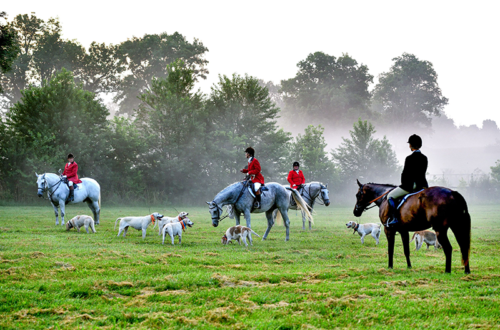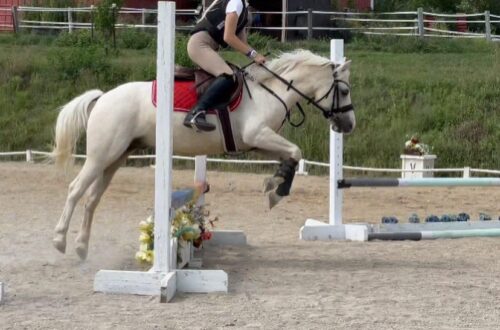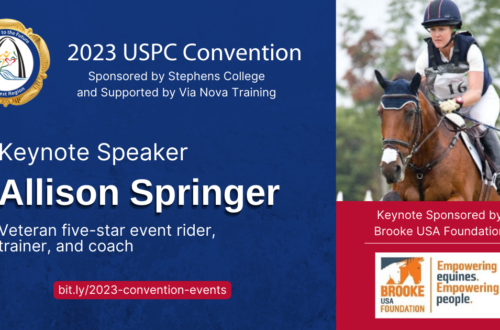Tales of a Pony Club Professional Groom Part 2
Thanks to Pony Club member Alex Ambelang we will now be offering some life lessons our members learn in Pony Club which help them in the real world. Alex is the head groom for Colleen Rutledge Eventing in Maryland. Follow along as she tells us how Pony Club has prepared her for this position as well as what she has learned since starting out. Alex will be a regular guest blogger, so if you have questions feel free to send them to us for her at Mandy@ponyclub.org.
Life After Pony Club: Challenges
Among some challenges I faced there were a few that stood out. One was integrating myself into someone else’s system. Something I have learned over the years is that every horse person has a little bit different way of doing things; how horse are fed, how horses are prepared for gallops, how they are taken care of afterward, different products, different regimes. I came into this at a disadvantage. I had only really groomed for myself and had only taken care of a select few people’s farms before this. I was comfortable with their routines and my own. It is challenging when you begin to second guess yourself on the simplest tasks such as treating a wound or choosing studs, as you are not deciding for yourself and your horse anymore. You are deciding for someone else, for their career, and their horses. It is through this process that I now truly understand that there are no stupid questions in this world. As scary as it may seem, simply asking your question and getting a prompt answer is MUCH better than just assuming and having to go back later to fix it or having to change something as the next horse should be going out to get worked. Assumptions mess 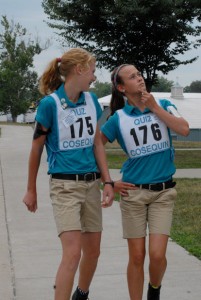 with the work flow and can upset the person you work for more than the silly question will.
with the work flow and can upset the person you work for more than the silly question will.
Another challenge, and by far the most difficult to grasp (for me), was and is realizing that the expectations that are set for us at testings and at rallies aren’t really sustainable over long periods of time. By this, I mean that we are generally protected from some of the reality that is the horse industry when we are placed in the controlled environments, such as testings and rallies. There will be days that tack will not get cleaned at the end of the day because 6 horses were galloped and its already 10pm. It will get done tomorrow. There are other days that the aisles don’t get raked and not everything makes it back to its place. That’s okay. It was through this realization that I began to learn to make priorities- the “what has to get done today” list. At the top of that list is always making sure that the horses are fed the appropriate type and ration of feed, have fresh water, are injury free (for the most part), and have the correct blankets (or lack of blankets) on for the day or night. Second on the list is getting as many worked as possible. This doesn’t mean we rush through each giving them short, un-fulfilling rides; it means we try to give each horse a good school that will enhance their training and success at competition or toward finding them their forever home. After these to things, smaller priorities such as tack cleaning, raking of aisles, laundry loads, and attending to any number of odd jobs that pop up each day. Your tack room is not going to look like a rally tack room every day and that is okay. Your aisle ways and stall fronts are not going to be rally ready each day, nor is your tack. Take a deep breath. Let go. Try again tomorrow. It comes down to making sure the horses are well taken care of and that the work space is safe and workable. That’s what I look for at the end of each day.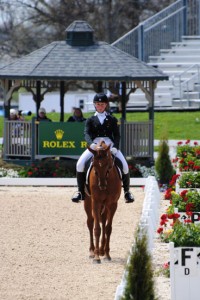
To say that being a groom is hard work is an understatement. As a groom you will put you heart, soul, blood, sweat, and tears into the horses that are put in your charge. You live their progress and their short comings just as their rider does and you will memorize each leg and each back and each reaction for every one, just as if they were your own. Just as with your own horse, their successes will give you joy and hope. Equally, their failures will frustrate and disappoint you. Take pride in that you are trusted enough to have these incredible athletes placed in your hands. Being a groom can be a bit of a thankless job, but know that the quality of care you provide them aids in their success and it is the small, unseen steps and moves that add up to big successes. Smile. You’re doing what you love. Remember to breath deeply and keep going.
Alex Ambelang is an H-A Traditional member of Five Valleys Pony Club in the Big Sky Region. She joined Pony Club at the age of 8 and has been an active member ever since. She has competed in Eventing through Preliminary and in jumpers and dressage. Alex has been a working student for two National Examiners and was a member of the USPC National Youth Congress in 2010. She served as a member of the USPC National Youth Board from 2012 to 2014 and is part of the USPC Visiting Instructor Program as well as the Regional Instructor Coordinator for the Big Sky Region. She received her Bachelor of Arts in Cultural and Medical Anthropology in December of 2014 and is currently working as head girl for Colleen Rutledge Eventing in
Maryland.

